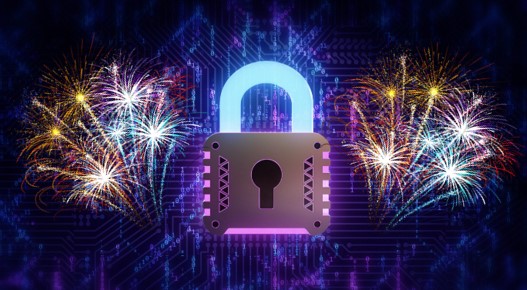BANG! BAM! BOOM! The Intricate Correlations of Cybersecurity, Hackers, and July 4th
July 4, 2023

As fireworks light up the sky and patriotic celebrations unfold, the Fourth of July marks a significant date in the United States, symbolizing independence and freedom. However, as we revel in the spirit of the holiday, it’s crucial to recognize the intricate correlations between cybersecurity, hackers, and July 4th. This blog post delves into the historical context, potential motivations, and practical steps to bolster your digital defenses during this festive period.
Historical Significance
July 4th holds historical significance that can inadvertently attract the attention of hackers. As a national holiday commemorating the Declaration of Independence, it serves as a potential target for cybercriminals seeking to exploit public sentiment or gain attention through disruptive actions. Hacktivist groups, motivated by political or ideological reasons, may view this day as an opportunity to carry out cyberattacks against symbolic targets or high-profile institutions.

Increased Cyber Threats
During holiday periods, cyber threats tend to escalate, and July 4th is no exception. Hackers may take advantage of reduced IT staffing, increased online activity, or lapses in security measures to exploit vulnerabilities. These threats can manifest in various forms:
- Phishing Attacks: Hackers often use enticing Fourth of July-themed emails or social media posts to lure unsuspecting users into revealing personal information or downloading malware-infected files.
- Distributed Denial of Service (DDoS) Attacks: Hackers might attempt to disrupt websites, online services, or critical infrastructure associated with July 4th celebrations, causing inconvenience or chaos.
- Data Breaches: Companies handling sensitive customer data may face increased attempts by hackers to breach their systems and steal valuable information. This can lead to identity theft, financial loss, or reputational damage.
Bolstering Your Digital Defenses
To safeguard yourself and your digital presence during the July 4th period, it’s crucial to take proactive steps to enhance your cybersecurity posture:
- Update and Patch: Ensure all your devices and software are up to date with the latest security patches. Regularly installing updates mitigates known vulnerabilities and protects you from exploit attempts.
- Be Vigilant: Exercise caution when receiving emails, messages, or social media posts related to July 4th events. Avoid clicking on suspicious links or downloading files from unverified sources. Verify the authenticity of any communication before taking action.
- Strengthen Passwords: Use strong, unique passwords for each online account and consider employing a password manager to securely store and generate complex passwords. Enable multi-factor authentication (MFA) whenever possible for an added layer of security.
- Educate Yourself: Stay informed about the latest cybersecurity threats and best practices. Educate yourself on common phishing techniques, social engineering, and how to recognize potential risks. Share this knowledge with your friends, family, and colleagues to foster a more cyber-aware community.
- Use Reliable Security Software: Install reputable antivirus and anti-malware software on your devices to detect and block potential threats. Keep the software up to date to ensure optimal protection against evolving cyber risks.

While July 4th represents a time of celebration and reflection, it’s essential to remain mindful of potential cybersecurity risks that accompany this patriotic holiday. By understanding the historical context, recognizing the heightened cyber threats, and implementing proactive security measures, you can safeguard your digital presence and enjoy a safe and secure Fourth of July. Let’s embrace the spirit of independence not only in the physical realm but also in the digital realm by protecting ourselves from hackers and preserving our freedom in cyberspace.
Have Any Question?
Call or email Cocha. We can help with your cybersecurity needs!
- (281) 607-0616
- info@cochatechnology.com




